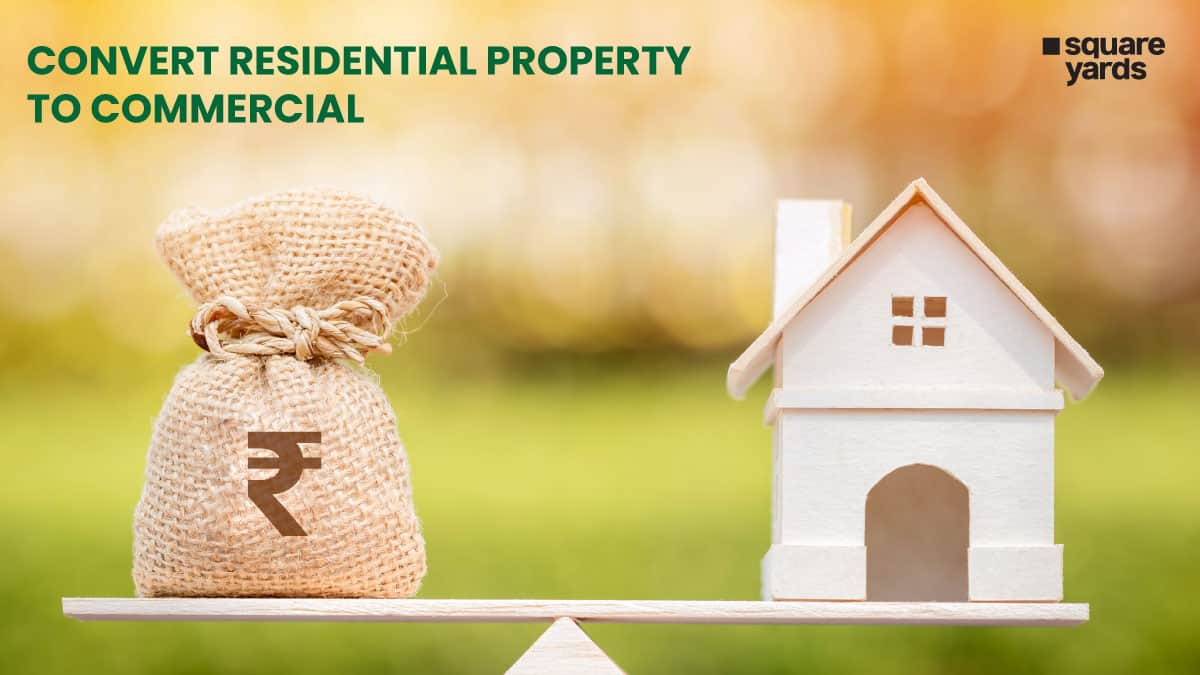Many people have unoccupied or sparsely occupied second homes that they invested in earlier. Some have big primary residences that they wish to put to better use as well. Many home owners often think of converting their second homes or a part of their residences into commercial units for earning more income. Here is a brief guide on the entire process.
Converting a part of one’s residence into a commercial unit for earning income or turning a second home into a commercial property are often considered by many people. However, the process is not as simple as you may think! Firstly, we should look at what exactly is meant by commercial activity. This stands for all such business operations and activities which involve the sale and purchase of products and services, involving capital. It means activities with profit as the underlying motive and risks of losses as well. These are commercial activities as per the prevailing definition. At the same time, professional activity means the services provided by doctors, accountants, lawyers, etc.
Converting Residential Units to Commercial – What You Should Know First
- Zoning laws are the key aspect in this process, created by local municipal authorities and other lawmakers, covering property usage and building construction.
- Regulations as per the zoning law basically talk about land usage in any specific locality. For example, the municipality may have a rule preventing the setting up of commercial or industrial properties in any stringently earmarked residential zone.
- Zonal authorities of local areas usually divide their jurisdictional regions into various categories, namely residential, industrial, commercial, public utility, semi-public and public category, open parks/areas/playgrounds, agricultural activity and transport and communication.
- These laws aim at demarcating commercial and residential zones while also deciding aspects like building height, spaces between two structures and so on.
- Commercial areas are buildings or any part where services or products are sold or purchased. Even professional services, software offices, corporate offices, showrooms, restaurants, hotels and accommodation, movie theatres, stores, outlets, nursing homes, community halls, clubs and banks will be treated as commercial zones.
- Zoning regulations vary throughout States. Some do not permit residential properties to be used for commercial activities while some do not have restrictions on the same.
- The Supreme Court judgment of 2006 has clearly stated the type of activities that are not allowed in residential areas- banquet halls, any activity dealing with inflammable, hazardous or polluting procedures/substances, retail shops for junk food, building materials, printing, liquor, varnishing and dyeing, repair shops for cars and bikes, and professional activities. The exceptions here are doctors, architects, chartered accountants and lawyers.
- These four types of professionals can use a specifically allowed percentage of their residential units for professional activities.
- Residential areas are allowed to have hostels, homes, old-age homes, public worship places, libraries, schools, telegraph and power offices, repair outlets, milk collection places, etc. Municipal authorities may also allow certain types of establishments in residential areas.
- These include government offices, golf clubs, hospitals, banks, charitable organizations, fuel stations, service industries, internet cafes, convenience stores, consulting rooms for doctors, parking lots, pay and use toilets, etc.
- All establishments should adhere to the noise limits as specified by the authorities.
Converting Your Property – Key Points
- Step 1 is to carefully find out the zoning laws of the area and municipality.
- You will have to apply for special permission from the local municipal authority, explaining the type of activity and the area that you need for the same.
- Permission may also be needed from the Town Planning Authority.
- If you are already a tenant in a residential building, you will require the landlord’s permission and agreement through an NOC for carrying out commercial activities.
- Housing societies may also impose higher maintenance costs or parking charges from commercial tenants.
- If you are starting any commercial activity at a residential building, you will have to get the license as per the Shop and Establishment Act of the State Government.
- Medical or legal practitioners do not require licenses under this regulation.
- The electricity bill that you pay may be charged at a non-domestic rate for a commercial space or within the domestic rate itself. The latter is available for hostels, residential premises, registered bed and breakfast units, places of worship, cooperative housing societies, electric crematoriums and shelter homes. They are also applicable for hospitals, dispensaries, educational institutions, orphanages, charitable homes, public libraries and professionals.
- Any other activity will be charged at the non-domestic rate which is a little more than the regular rates.
- Your property tax will also be higher if you are undertaking commercial activity on your premises. The tax quantum is more for these units.
- Some States enable conversion of up to 30% of the house area for commercial usage by professionals like CAs, doctors, and lawyers while others do not allow the same.
- If your State allows this, you should get permission from the housing society if applicable, before converting your residential property.
- You will also have to get the requisite municipal permissions as mentioned above and after conversion, the property will be taken as a commercial unit for every purpose, meaning that your property tax outgo will be more.
- Commercial charges will also apply courtesy of the civic authorities on the water supply and other utilities, depending on the type of business, the size of the property and the area in question.
- There are some activities that are exempted including painting, teaching, dance, yoga and tuition classes. You will not have to pay commercial charges in these cases across most Indian States.
These are some of the key points worth noting if you intend to convert your residential unit into a commercial property in the future.




